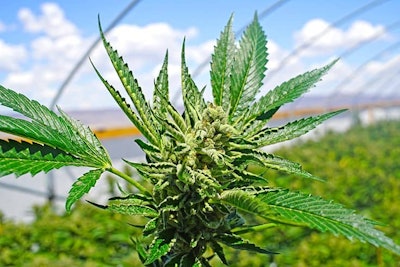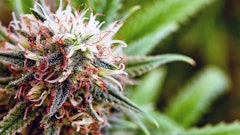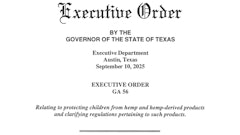
CascadeCreatives | Adobe Stock
This week, the New Mexico Senate Judiciary Committee voted to table a cannabis legalization bill, rendering legalization efforts dead in the state this year. Elsewhere, the West Virginia House and Senate passed decriminalization measures, and once the chambers reconcile the minor differences between their proposals, the legislation can be sent to Gov. Ralph Northam, who has promised to sign it.
Here, we’ve rounded up the 10 headlines you need to know before this week is over.
- Illinois: State officials are allowing medical cannabis businesses to extend their operating hours in an attempt to prioritize patients as supply problems continue to plague the state since its launch of adult-use sales on Jan. 1. llinois’ law previously set 8 p.m. as the cut-off time for medical cannabis sales, while adult-use sales were permitted until 10 p.m. Now, medical sales can also continue until 10 p.m., according to a statement issued by the Illinois Department and Professional Regulation. Read more
- West Virginia: Lawmakers have amended the state’s medical cannabis law to allow patients to access the plant form of cannabis. The change is part of Senate Bill 339, a package of regulations that the West Virginia Department of Health and Human Resources submitted for legislative approval. Read more
- Maine: Lawmakers held a hearing Feb. 10 on legislation that would keep parts of the state’s cannabis market a secret by not requiring business owners to provide details on security, trade secrets or standard operating procedures to the state’s Office of Marijuana Policy. Some argue that the bill could possibly limit the amount of information available to customers before they purchase cannabis products in the state. Read more
- Virginia: The House of Delegates passed a bill Feb. 10 that would decriminalize the possession of cannabis in the state. H.B. 972, introduced by Del. Charniele Herring, would make the simple possession of cannabis punishable by a civil fine of $25 that can be paid like a parking ticket and that does not go on an individual’s criminal record. Read more
- The Virginia Senate passed a similar decriminalization measure, S.B. 2, on Feb. 11 that would set the maximum penalty for cannabis possession at a $50 fine. The two legislative chambers must now reconcile the minor differences between their proposals in conference, and Gov. Ralph Northam has promised to sign a decriminalization bill into law this year. Read more
- Iowa: Lawmakers have introduced two legislative proposals to raise the state’s 3% THC limit for medical cannabis products. A bill in the House, House Study Bill 653, would replace the current cap with a limit of 4.5 grams of THC over a 90-day period, while Senate Study Bill 3136 would impose a limit of 25 grams of THC every 90 days. Read more
- Kentucky: The House Judiciary Committee voted Feb. 12 in favor of a bill that would legalize medical cannabis for patients with debilitating medical conditions in Kentucky. H.B. 136 will now head to the House of Representatives for a full vote. Read more
- New Mexico: The Senate Judiciary Committee voted Feb. 12 to table a bill that would have legalized adult-use cannabis in the state. The legislation is now likely dead for this year’s 30-day legislative session, which ends next week. Read more
- Alabama: A bill to legalize medical cannabis in Alabama has been introduced in the state legislature following a study commission’s discussions on the best approach to a legislative proposal. Sen. Tim Melson is sponsoring Senate Bill 165, titled “The Compassion Act,” and the legislation is scheduled for a Feb. 19 hearing by the Senate Judiciary Committee. Read more
- Georgia: The number of Georgians enrolled in the state’s medical cannabis program has increased by more than 70% in one year. A total of 14,511 residents now hold medical cannabis cards that allow them to access low-THC cannabis oil (containing less than 5% THC), which is a dramatic increase from the 8,402 patients enrolled in the program roughly one year ago. Read more

























